I started going to drag and burlesque shows when I moved back home to Washington, DC. The community I was starting to build included artists and performers of all kinds, and going to shows became a typical means of supporting a friend. Even when friends weren’t performing, I was drawn to the range of bodies I saw celebrated on stage — all genders, ages, sexual orientations, body types, abilities, and ethnicities. There were so many aspects of the shows that I didn’t see in other entertainment spaces in DC: ASL interpreters, trigger warnings, and considerable investment in ensuring both performer and audience were as safe as possible.
There is so much inclusivity and intentionality in the spaces created by Pretty Boi Drag, DC Weirdo Show, Swazz, Manic Pixie Nightmares, #TeamHusband and more. It had a powerful impact on me, and it turns out it had a powerful impact on many of the performers featured here. Witnessing others like them on stage motivated many of these performers to take the stage for the first time. For these performers, drag and burlesque are means of self exploration, self-care, healing, sexual expression and an opportunity to celebrate Blackness in a way that disrupts stereotypes. Here are just a few of the amazing performers in DC’s drag and burlesque communities.
![]()
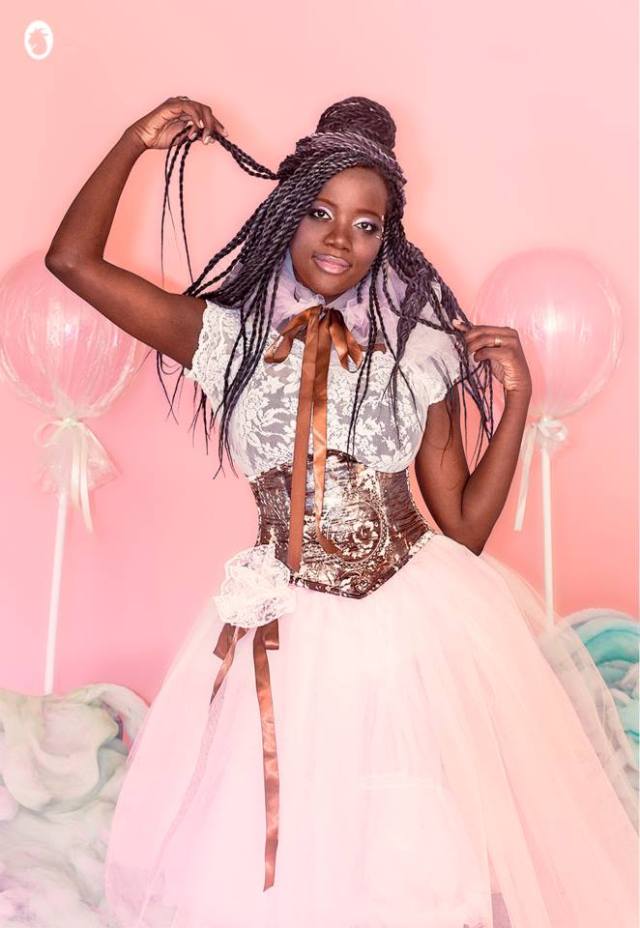
Blaq Milk
Instagram: @blaq.milk
Blaq Milk is a drag and burlesque performer who grew up in Senegal and Mauritania. From their signature braids to their portrayals of aliens and demons, Blaq Milk infuses their performances with their Black nerd weirdness and West African culture. As a person on the gray-ace spectrum, their shows are less about being sexy, and more about embracing their weirdness—shouting at audiences while wearing creepy contacts and black light body paint.
DC’s drag and burlesque scenes have been a great place for them to play, explore, and get weird: “DC has a really diverse group of performers in terms of gender, race, and also in the types of acts that exist. People have a lot of space to be innovative and weird, especially the trans and non-binary community of DC….There are a lot of subcategories, and I’ve been really happy to see a lot of sideshow performance led by people of color.”
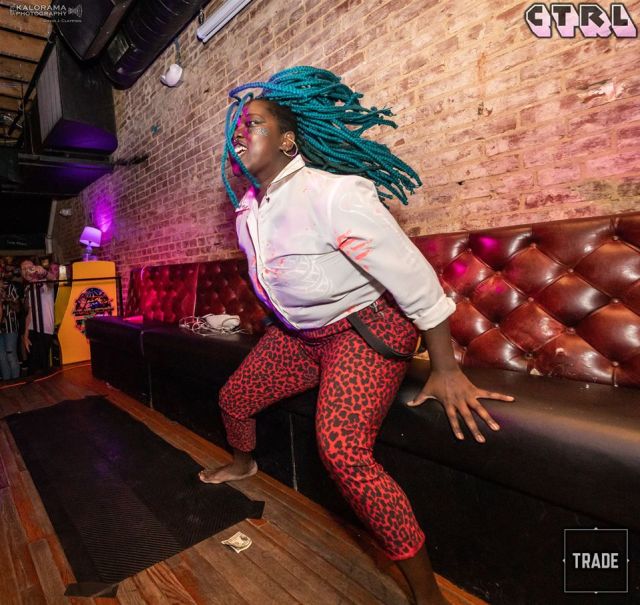
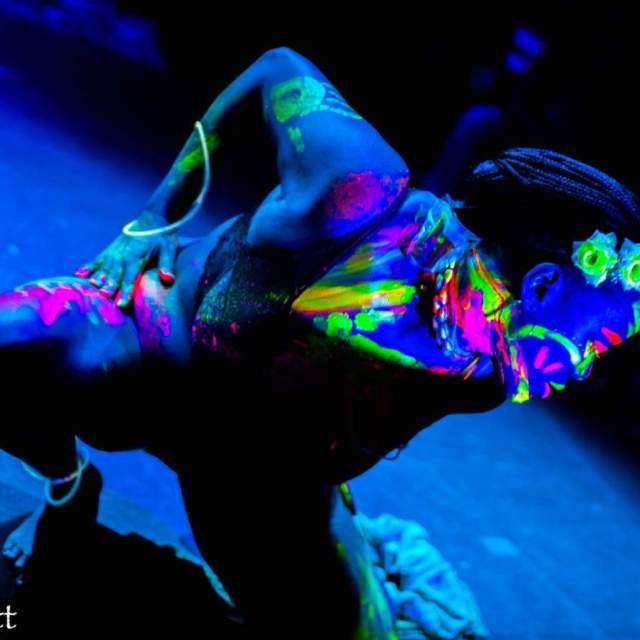
It’s not only the innovation and range of performance that draws Blaq Milk to the stage, it’s also collective care: “There’s a very important relationship between mental health and performance. Getting ready for a show can take weeks, you have to think of costuming, how the song makes you feel, and what you’re trying to say. You have to be very aware of who you’re talking to, and who you’ll be exposed to…It’s not just about me. It’s a shared experience…I’m taking care of myself doing something I love. I’m taking care of other people [by sharing that with them]. What they’re giving in return is not just money— [it’s] a connection. I have Asperger’s and there are a lot of things in my day to day life that would be hard to do, that I’ve learned to do through performance. Like looking at people straight in the eye. So there’s really a lot of trust between you and the audience…It’s beyond just tearing my clothes off—which is also fun and valid. For me it’s the connection that makes it really special, that makes me keep going back again and again.”
![]()
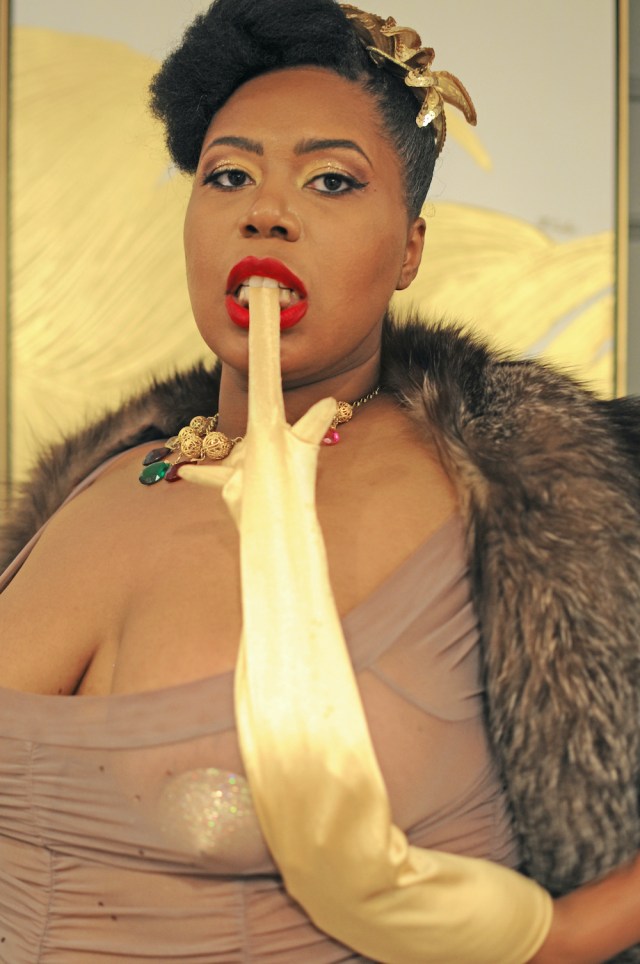
Ché Monique
Instagram: @mermaidchemonique
Ché Monique has performed burlesque for over a decade, starting out as a member of DC Gurly Show, the longest running queer burlesque troop in Washington, DC. “One night I [was surfing the internet] and discovered the Gurly Show and that they had monthly shows at this bar called Club Chaos and I went and it was the most amazing thing ever.”
When she first started performing, most venues featured burlesque performers who were “very white, very conventional body types.” Aiming to carve out safe and accessible spaces for Black performers and audiences, Ché Monique founded the troupe Chocolate City Burlesque and Cabaret. While the troupe is no longer active, its legacy lives on: “[Chocolate City Burlesque] changed the game and changed the vibe for performers of color. Just by watching what we were doing, we helped a little bit to pave the way for Pretty Boi Drag, and there were amazing performers that came through CCBC.”
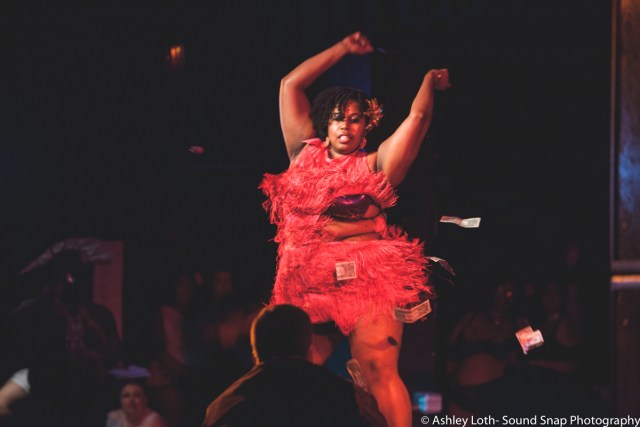
While seeing “fat, sexy ladies owning it” on stage drew her into burlesque, Ché Monique says it can be frustrating “to get tokenized as inspiration for people. It’s a double edged sword — because seeing people in an othered body thriving can totally open up the world and in that way I think it’s very powerful for people, but it’s one thing being inspiration for [another fat person], another to be inspiration for someone who is a size eight.” Nowadays Ché Monique doesn’t perform in spaces where she will be othered, and is mostly likely to perform at shows like Eat Your Hart Out: A Fat Burlesque Revue in DC.
![]()
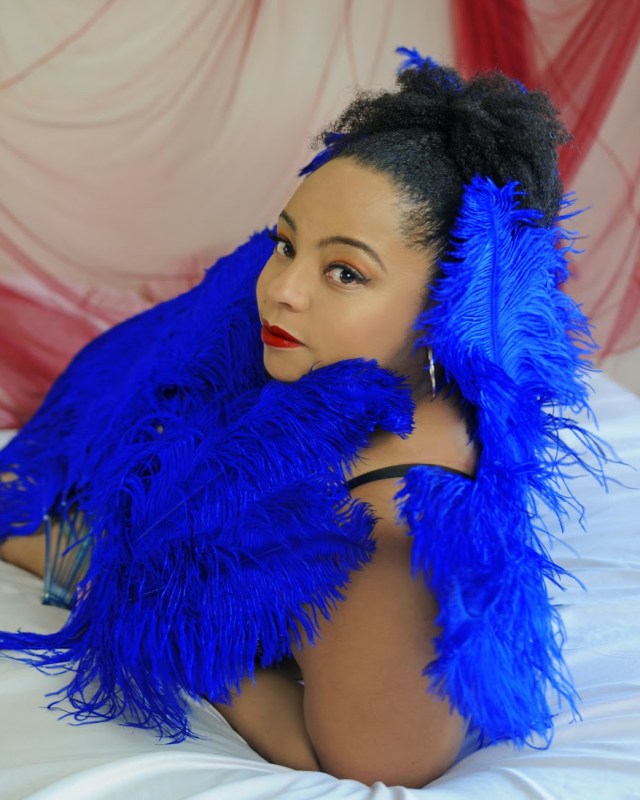
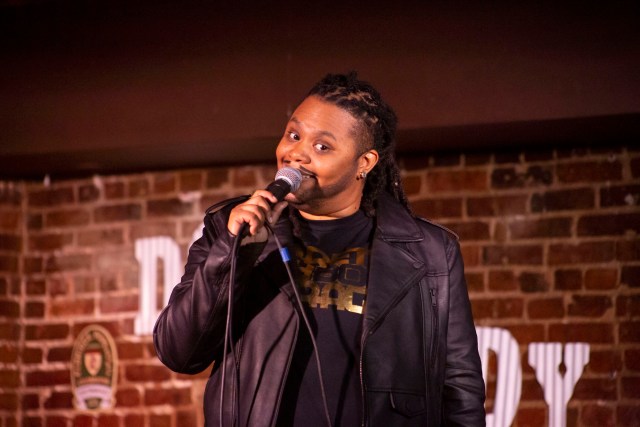
Lexie Starre and Pretty Rik E
Website: www.prettyboidrag.com
Instagram: @prettyboidrag
Pretty Rik E and Lexie Starre are the producers of Pretty Boi Drag, a queer people of color-centered drag king troupe founded in 2016. Their love for the DC performance community runs deep — it’s how the two met and fell in love.
For Lexie, burlesque is empowering, “I love the sensuality of burlesque; the tease, the slow burn, the audience waiting for your next move. There is so much power in a sensual performance. As a fat, black woman, having the opportunity to own my body and my sexuality has been an amazing experience.” Although, performing does come with its challenges. Lexie said “You can be riding high after a performance and then overhear an audience member refer to you as “the Black girl.” Not the one with the amazing stocking peel, not the one with the incredible costume, not any of the other descriptors that are used to differentiate your white counterparts.”
This is why, as Pretty Rik E, explains “Having spaces that center and uplift Black performers creates a magic you can almost feel. I have been to too many shows where I felt uncomfortable because I was either the only performer of color, or one of few audience members of color. There are so many talented Black performers in the scene and it’s important that they are given just as many opportunities to shine as their white counterparts.”
![]()
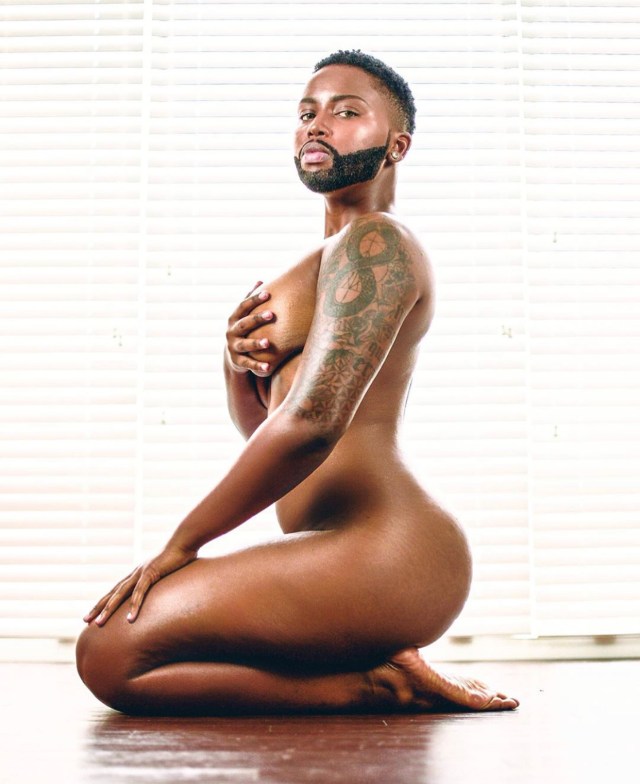
Majic Dyke
Instagram: @majic.dyke
Majic Dyke, “the king of beards and titties,” based his persona on that of a male stripper, a nod to the character Magic Mike. Being visible as a queer Black, African performer keeps Majic Dyke returning to the stage. He started doing drag as a way to express his sexuality. “My sexuality had been so closeted. I wanted my drag to embody all the things that I had to hide away my entire life.” Drag has also been a means of gender expression. “My blend of drag is very nonbinary, so when I come out super masc, and do a big reveal and it’s straight titties, people are often taken aback.” The surprise doesn’t last long, Majic Dyke says, and audiences are usually drawn to his blend of performance.
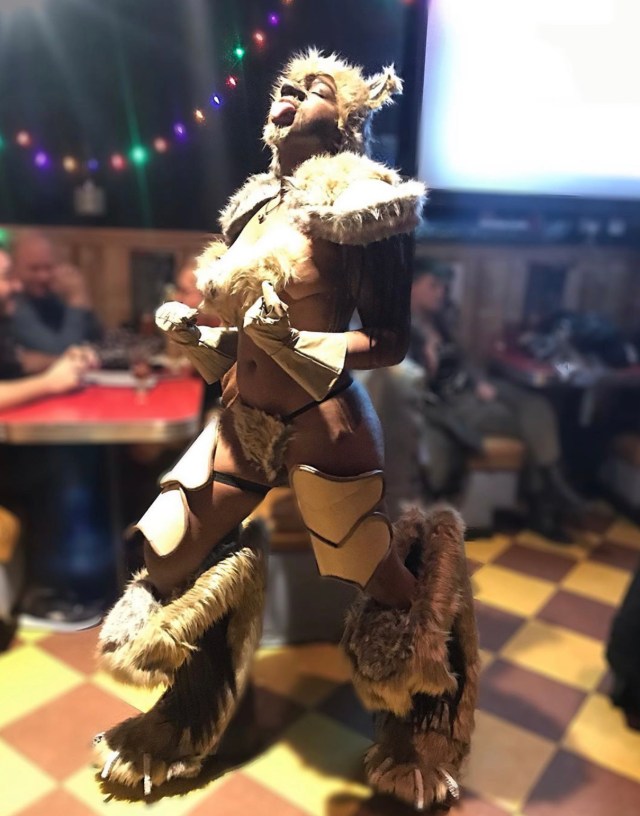
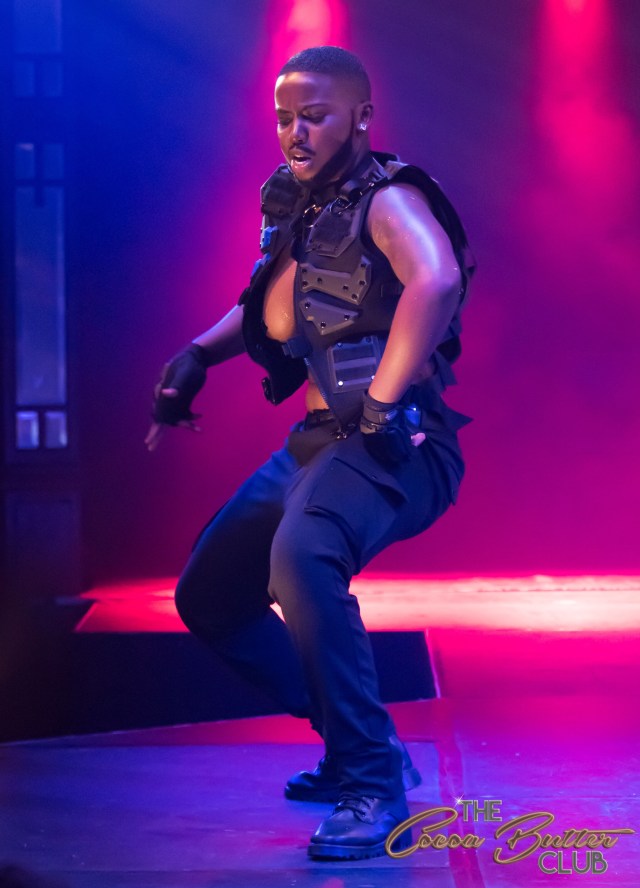
In DC, and nationally, the drag scene hasn’t always embraced kings, let alone those who blur gender in performance. Majic Dyke has watched DC’s drag scene expand from a polarized space centering white drag queens, to embrace “artistry that does not adhere to any specific rules as far as masculinity or femininity—drag that is just centered on self expression.” There’s still of course, “the patriarchy bullshit or the racism when you’re backstage,” which Majic Dyke says manifests in cisgender gay men portraying women in a really sexist way, who don’t filter the n-word, and who perform Black songs in a manner that’s essentially Blackface. “At the end of the day white men hold the most power in all of our society,” he adds.
It’s the ability to thrive in spite of these realities that Majic Dyke values. “It’s important to see us in ways that aren’t shrouded in our trauma–we can still live a life that’s full of love and positivity.” This is why Majic Dyke helps create spaces that center Black Joy, like co-producing Unforgivable Blackness, an all-Black variety show.
![]()
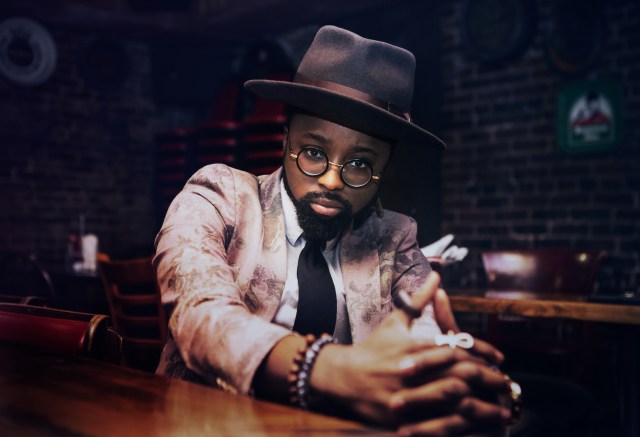
Molasses
Instagram: @kingmolasses
Molasses wasn’t sure what drag name to adopt, but their partner had a flash of inspiration while she was cooking one day: Blackstrap Molasses. Molasses felt the full name was a bit much (their partner still adds the Blackstrap). As is the case for many performers, drag gave them the opportunity to explore themselves, “Drag allowed me space to explore my heritage and identity fully. I’m first-generation Nigerian-American and I think I carried a lot of shame diving into drag knowing where I was from and how I was raised…But the more I began to cultivate the type of performer I was, the more I allowed myself to shed those fears and understand how much of my heritage intersects with my queerness and drag and explore.”
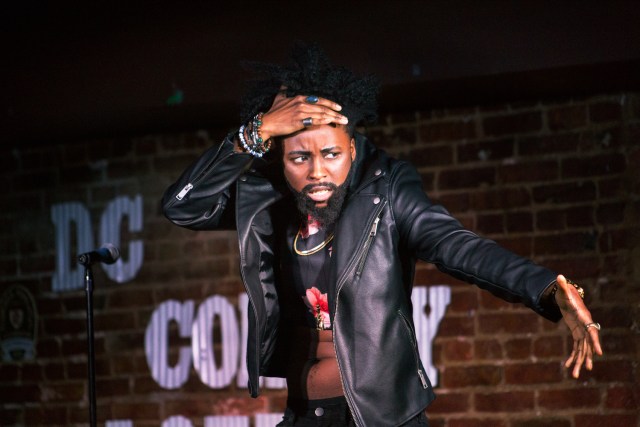
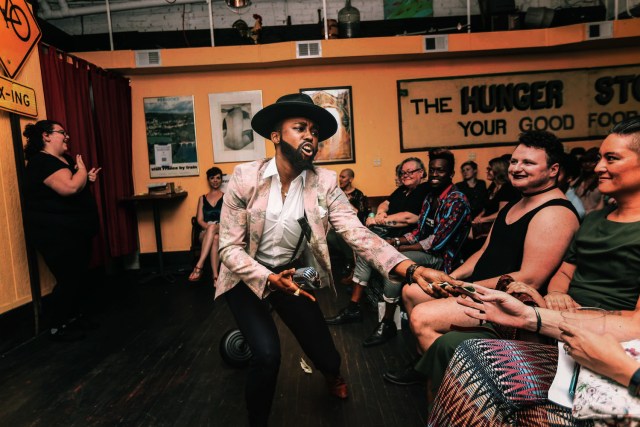
The DC drag scene provided a great space for this exploration, and the first song they ever performed was Sex on Fire by Kings of Leon. They wanted to disrupt the perception that Black kings only performed rap or trap music —they love rock too. Molasses was immediately met with support and encouragement, and says the camaraderie amongst drag kings in DC has been amazing. Performers support each other to actualize their visions both on stage and in the DC, Maryland, and Virginia area (what locals call the DMV) at large. “I didn’t expect there to be such a stronghold of us really contributing to the cultural conversation of the DMV. I’m in complete awe and respect of my peers as someone who is very new.” Drag kings are not only creating safe spaces for performers and audiences at nightlife events, but also give back and make drag accessible to the greater DMV community through benefit shows, performing at schools, and other non-club environments.
DC’s drag community is inherently political. “The king scene in DC really reflects the pushback of the marginalized communities who are unfortunately leaving DC based on economics and cultural changes. With that it reflects a really beautiful, strong, diverse and honestly eclectic scene where you really see all sides of masculinity and femininity within what a drag king looks like in DC.”
![]()
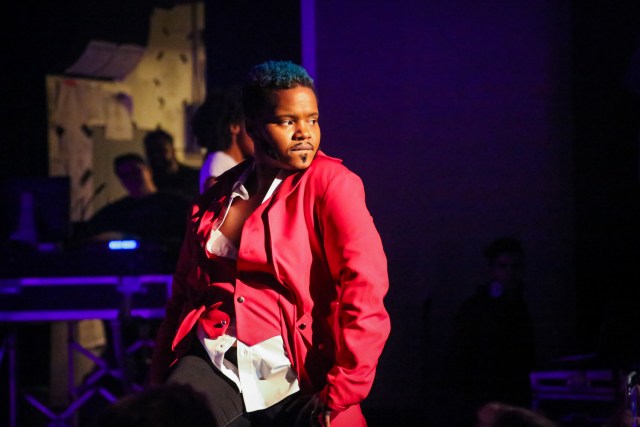
Tre D. Thickum
Instagram: @tredthickum
Tre D. Thickum first saw drag at a Pretty Boi Drag open king night, an event where new and amateur drag kings can perform. They were hooked and decided to try it out for themselves.
For Tre, drag is a means of accessing joy. Hey Ya! by Outkast was the first song they performed. That night they almost didn’t make it to the stage. Tre’s job at the time was working with families and youth in Southeast DC to ensure students received wraparound support to graduate high school and college. A week before the open king night, one of the children they worked with was murdered. The child’s vigil was the same night of the show.
“Spirit was very clear: you need to create tangible joy right now. And it was the most freeing and liberating and cathartic experience that I could ever have. It was just complete joy, and it was something that I could share with everybody at that moment. I realized that drag wasn’t just about about performing, it really is an art that can heal. During a performance you are completely thinking about what is going to happen next. You’re like Oh, oh, what was that? That was a body roll. Was that a nipple? No? That was just glitter. I truly believe that we’re healers as well, just as any art is a form of healing. It was everything that I needed.”
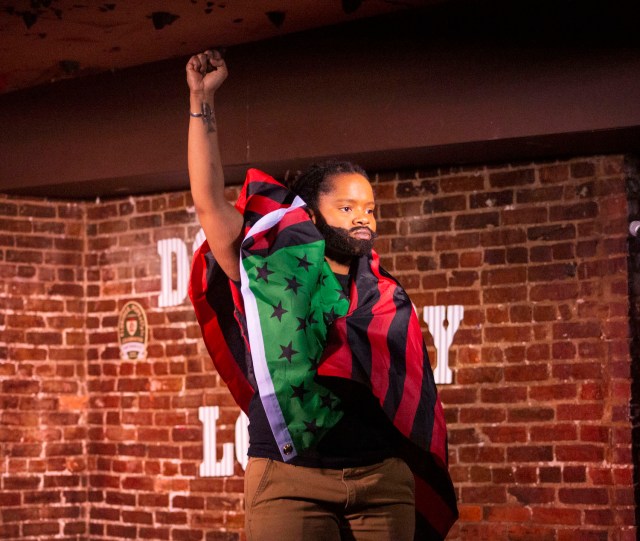
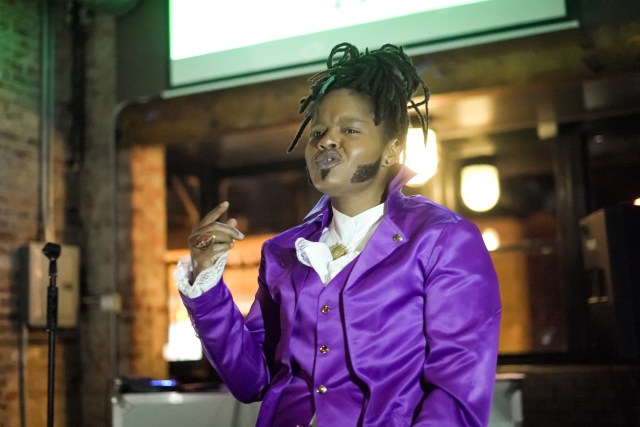
Drag is so much more than “glitz and glamor and body rolls.” Many performers bring their politics into their acts, and use their platforms to raise awareness and funds to meet needs the government fails to. Tre lifts up performers like Ricky Rosé who recently produced drag shows to raise money for disaster relief in Puerto Rico.
DC’s drag community disrupts norms and celebrates all identities. For Tre, it’s even a family activity—their wife, Leigh Crenshaw, co- produces Unforgivable Blackness with Majic Dyke. In so many ways, Black performers are leading the way. “We are cracking open what it means to be in drag,” Tre explains, there is “non-binary drag, alien drag.” In DC there are places where assigned female at birth (AFAB) and trans individuals are still not embraced and drag kings are viewed as little more than a novelty act, but king performers are “going into those spaces and shattering those norms.”
![]()
Now, four years after I returned to DC, drag and burlesque shows remain exciting and boundary pushing. The producers and performers centering Black entertainers create a welcoming place for people from various marginalized backgrounds to commiserate, be sensual, and find joy in community. I value this immensely, as I navigate a home I scarcely recognize in the wake of gentrification, exacerbated by 45’s regime bringing white supremacists donning MAGA hats to the city. We must celebrate the power of drag and burlesque spaces for performers and audiences alike. We must sustain it — so offer up your venue for a show, tip your performers generously, and maybe even go on stage yourself! 🔮
Edited by Kamala









Comments
Oh my gosh, this made me miss DC so much! For several years the highlight of my Pride weekend was going to Pretty Boi Drag and bringing everyone along. it was such a joyful and sexy and creative start to a day that could quickly become gross and corporate and skinny/white/male.
majicdyke has also performed spectacularly in Baltimore!! 13/10 would love to see again
Thank you!! Do you have info on where to see these performers, or should I just follow Pretty Boi Drag, etc? Ever since Phase One and Town closed, I have a hard time staying up to date on where the queer nightlife is here.
Yay! DC has such amazing performers making drag what they want it to be. It’s gorgeous. I need to get out more!